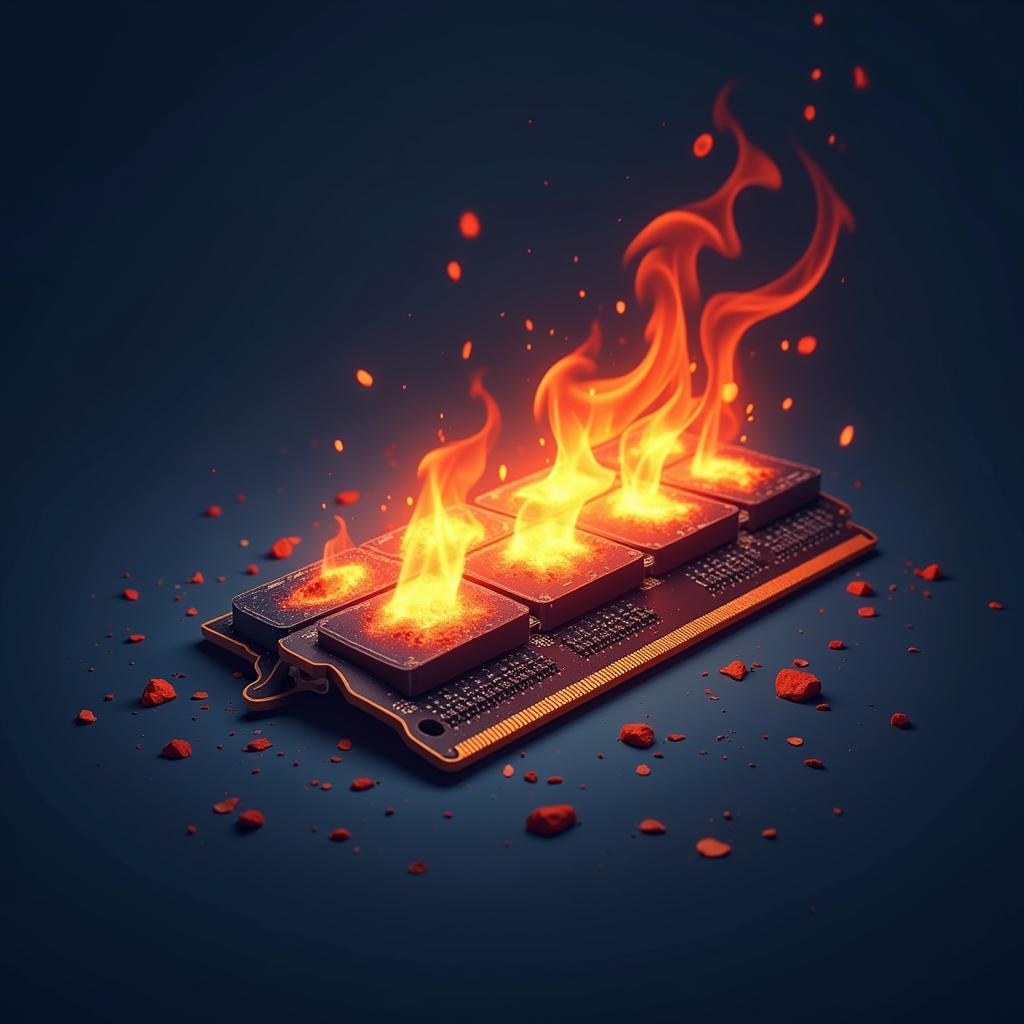RAM, or Random Access Memory, is a crucial component in any computer system. It’s responsible for storing data that the CPU needs to access quickly. While most people focus on the speed and capacity of their RAM, few consider the importance of RAM cooling. This begs the question: do RAM fans actually matter?
The Role of RAM Temperature
Like any electronic component, RAM generates heat when in operation. While modern RAM modules are designed to withstand a certain level of heat, excessive temperatures can negatively impact performance and lifespan. High temperatures can lead to:
- Reduced Performance: Overheating can cause thermal throttling, where the RAM slows down to reduce heat generation, leading to noticeable performance drops in demanding tasks like gaming or video editing.
- System Instability: Extreme heat can cause errors and crashes, making your system unreliable.
- Shortened Lifespan: Consistently running RAM at high temperatures can degrade its components over time, reducing its lifespan.
 RAM Overheating Illustration
RAM Overheating Illustration
When RAM Fans Become Essential
While most RAM modules can function adequately with standard airflow within a well-ventilated case, there are situations where dedicated RAM fans become crucial:
- Overclocking: Pushing RAM beyond its factory settings generates significantly more heat. Active cooling becomes essential to maintain stability and performance.
- High-Performance Systems: Gaming rigs and workstations that run demanding applications for extended periods generate substantial heat overall. RAM fans can help ensure optimal cooling for all components.
- Small Form Factor PCs: Compact cases often have limited airflow. Adding RAM fans can significantly improve cooling in these restricted environments.
Types of RAM Cooling Solutions
There are several ways to keep your RAM cool:
- Heatsinks: Many RAM modules come with pre-installed heatsinks that passively dissipate heat.
- RAM Fans: These small fans are specifically designed to clip onto RAM modules, providing direct airflow.
- Case Fans: Strategically placed case fans can improve overall airflow, indirectly cooling RAM.
- Liquid Cooling: While less common, liquid cooling solutions for RAM do exist, offering the highest level of cooling performance.
Assessing Your Needs
Whether you need dedicated RAM fans depends on your specific setup and usage:
- Regular Use: For basic computing tasks and well-ventilated cases, dedicated RAM fans are usually unnecessary.
- Demanding Tasks: Gamers, content creators, and anyone running demanding applications should consider RAM cooling, especially if overclocking.
- Temperature Monitoring: Use software like HWMonitor to track your RAM temperatures under load. If they consistently exceed 85°C (185°F), additional cooling is recommended.
Conclusion
While not always essential, RAM fans can provide valuable cooling benefits, especially for overclocking, high-performance systems, and compact PCs. By keeping RAM temperatures in check, you can ensure optimal performance, system stability, and longevity for your valuable components.
FAQs
1. Will RAM fans make my system quieter?
RAM fans themselves can add a small amount of noise. However, by keeping your RAM cooler, they can prevent other components from working overtime and generating excessive noise.
2. Can I install RAM fans on any RAM module?
Not all RAM modules have heatsinks designed for fan clips. Check your RAM specifications and compatibility before purchasing fans.
3. Are RAM fans expensive?
RAM fans are relatively affordable, with prices varying depending on the brand and features.
Need More Help?
For personalized advice on RAM cooling or any other tech-related queries, don’t hesitate to contact us:
Phone: 0903426737
Email: fansbongda@gmail.com
Address: Tổ 9, Khu 6, Phường Giếng Đáy, Thành Phố Hạ Long, Giếng Đáy, Hạ Long, Quảng Ninh, Việt Nam.
Our team is available 24/7 to assist you.


